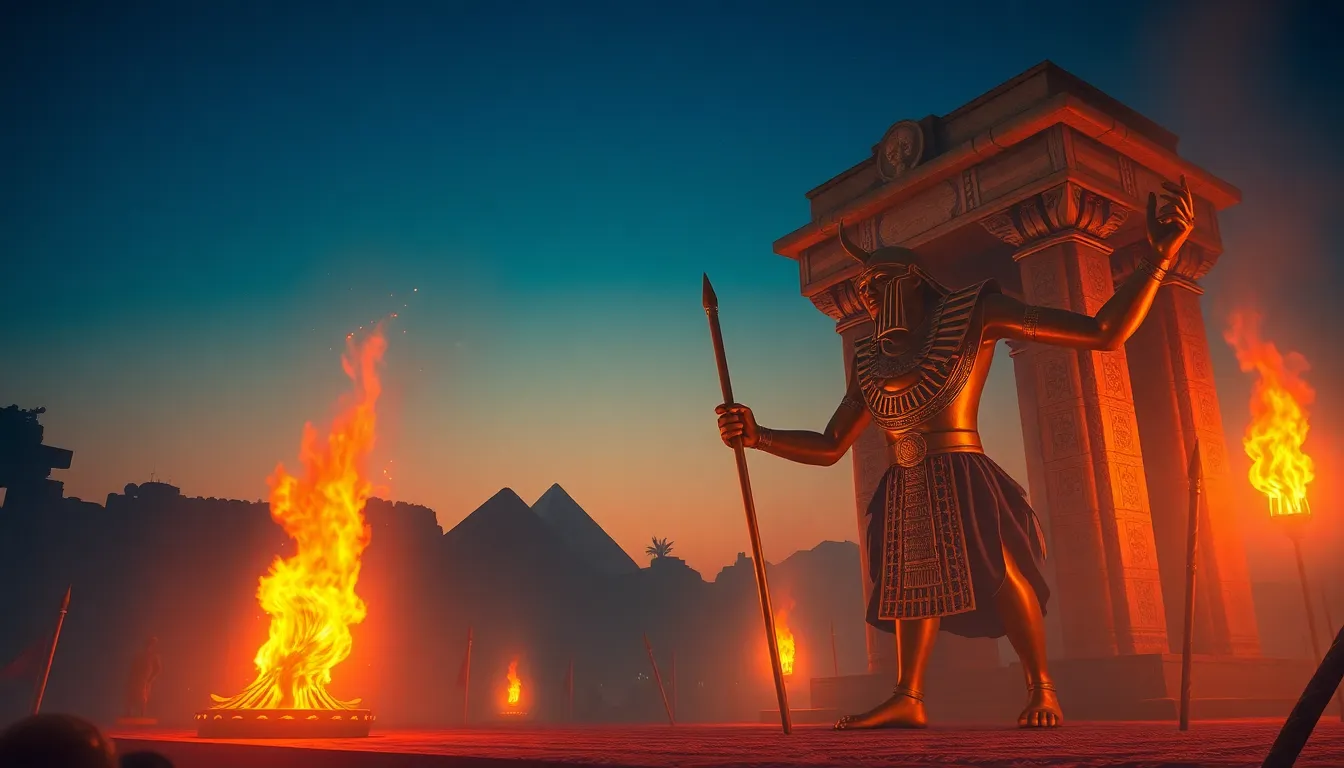Festivals of the Gods: A Dive into Egyptian Celebrations
I. Introduction to Egyptian Festivals
Festivals were a vital aspect of ancient Egyptian culture, serving as a means to celebrate the divine and the natural cycles of life. These celebrations were not mere social gatherings; they were deeply intertwined with the religious beliefs of the Egyptians, reflecting their values, traditions, and relationship with the gods. Festivals provided a structured way to honor deities, commemorate significant events, and reinforce the connection between the people and their divine protectors.
II. The Pantheon of Gods in Egyptian Mythology
The ancient Egyptians worshipped a complex pantheon of gods, each with distinct roles and attributes. Key deities include:
- Osiris: God of the afterlife and resurrection.
- Isis: Goddess of motherhood, magic, and fertility.
- Horus: God of the sky and kingship, often depicted as a falcon.
- Ra: The sun god, representing creation and light.
- Thoth: God of wisdom, writing, and knowledge.
Each of these gods influenced the nature and timing of festivals, as celebrations were often dedicated to specific deities, aligning with their mythological narratives and seasonal cycles.
III. Major Festivals in Ancient Egypt
Several significant festivals punctuated the ancient Egyptian calendar, each serving unique purposes:
- Opet Festival: Celebrated to honor the god Amun, this festival involved a grand procession from Karnak to Luxor, symbolizing the union of Amun with his wife Mut and son Khonsu.
- Wepet-Renpet: The New Year festival, marking the annual flooding of the Nile, which was crucial for agriculture. It was a time of renewal and hope.
- Sed Festival: A royal jubilee celebrating the continued reign of a pharaoh, symbolizing rejuvenation and the king’s vitality.
These festivals were typically timed in accordance with the agricultural calendar, ensuring that they coincided with critical agricultural events such as planting and harvesting.
IV. Rituals and Ceremonies Associated with Festivals
The rituals performed during festivals were elaborate and varied, often involving:
- Processions with statues of deities carried through the streets.
- Offerings of food, flowers, and incense to the gods.
- Ritual recitations and prayers led by priests and priestesses.
- Public feasting and communal gatherings.
Priests and priestesses played a pivotal role in leading these celebrations, acting as intermediaries between the gods and the people. Their duties included performing sacred rituals, maintaining temple offerings, and ensuring that the gods were properly honored.
V. Festivals as a Means of Community Building
Festivals served as a powerful tool for fostering social unity and community spirit among the ancient Egyptians. These celebrations:
- Encouraged participation from all classes of society, from pharaohs to commoners.
- Facilitated social interaction and strengthened communal bonds.
- Provided a platform for the expression of cultural identity and shared values.
The collective experience of celebrating together reinforced the social fabric of Egyptian society, creating a sense of belonging and shared purpose.
VI. Art, Music, and Dance in Egyptian Celebrations
Artistic expression was integral to ancient Egyptian festivals, manifesting through:
- Music: Instruments such as harps, flutes, and drums were played during celebrations, enhancing the festive atmosphere.
- Dance: Dance performances, often depicting mythological stories, were a common feature of festivals, adding to the celebratory spirit.
- Visual Arts: Decorations, murals, and sculptures depicted scenes of the festivals, capturing the essence of these sacred occasions.
These forms of artistic expression not only served as entertainment but also as a means of worship, conveying the beauty and reverence associated with the divine.
VII. Modern Relevance of Ancient Egyptian Festivals
While ancient Egyptian festivals may no longer be celebrated in the same way, their influence persists in contemporary Egyptian culture. Modern celebrations often echo ancient traditions, with:
- Festivals that mark the agricultural calendar, such as harvest celebrations.
- Religious observances that reflect ancient beliefs and practices.
- Cultural events that honor Egypt’s rich history and heritage.
The legacy of these festivals continues to inspire modern religious practices, reminding Egyptians of their deep-rooted connection to their history and spirituality.
VIII. Conclusion: The Enduring Legacy of Egyptian Festivals
The festivals of ancient Egypt were not only celebrations of the gods but also reflections of the society’s values, beliefs, and communal spirit. These vibrant occasions served to reinforce the connection between the divine and the people, facilitating a sense of unity and shared identity. As we explore the significance of these ancient celebrations, we uncover lessons that resonate in today’s world, emphasizing the importance of community, cultural heritage, and the enduring power of ritual in human life.




